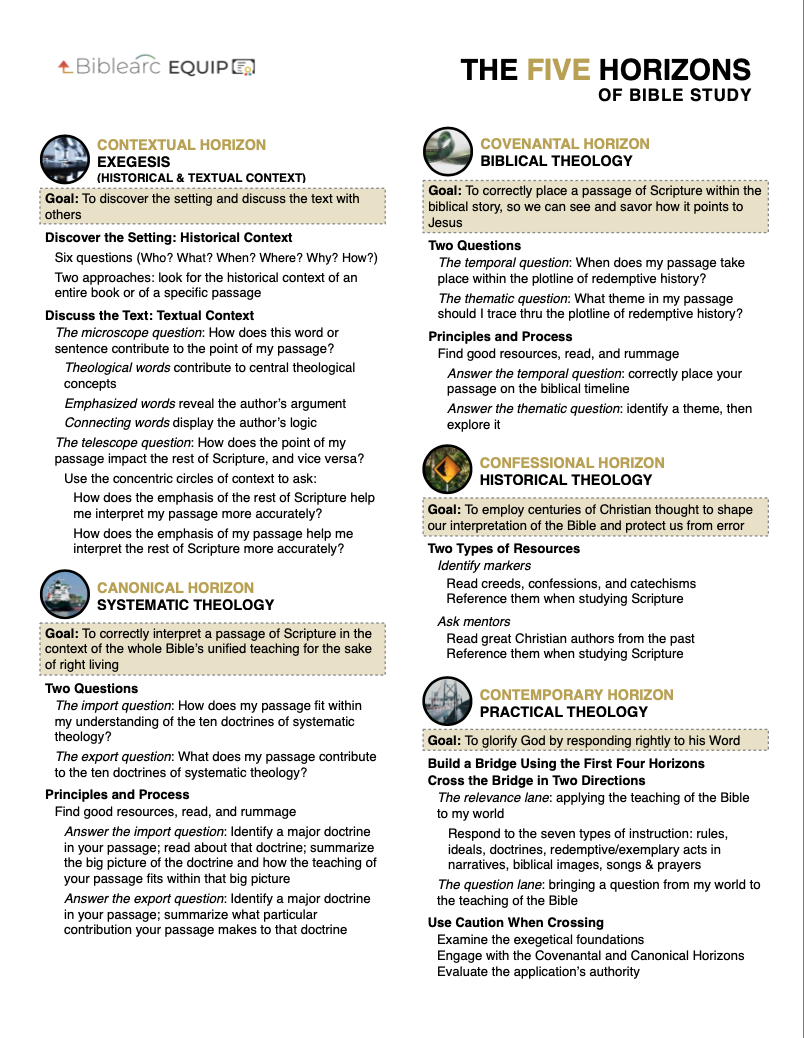Lesson 3: The Contextual Horizon (1)
Review

- How to Find Good Commentaries
- A good commentary’s underlying presuppositions are biblical; it also matches your abilities, will help you accomplish your purpose, and points you back to the text.
- You can find one in commentary surveys, bibliographies, or online lists.
- You can find some commentaries for free, and can choose between physical or digital copies.
- The Five Horizons of Biblical Interpretation
- The Contextual Horizon (exegesis)
- The Covenantal Horizon (biblical theology)
- The Canonical Horizon (systematic theology)
- The Confessional Horizon (historical theology)
- The Contemporary Horizon (practical theology)
- Using Rich Resources to Discover the Setting of the Contextual Horizon
- Definition: “The social, religious, economic, and political conditions that existed during a certain time and place.”
- Six Questions to Ask
- Who? The authorship, audience, and major figures and powers of the passage.
- When? The original date of the message in relation to major periods and powers, including assessment of what events precede and follow (with consideration of potential influence either way).
- Where? The physical location and geography pointed to in the text.
- Why? The cause and purpose of the message.
- How? The genre and thought flow of the passage. At stake here is answering, “Why did he say it that way?”
- What? Here our focus is less on what is said and more on what is assumed in the text (e.g. worldview, social structures, customs, politics, religious practices, and geographic considerations).
- Two Approaches to Take
- Look for the historical context of the entire book.
- Look for the historical context of a specific passage.
By the way, if you want help with the Contextual Horizon, or with anything else in this course, please reach out to your coach! He is available not only to give you feedback on your assignments but also to have up to two video calls with you per month.
 The Five Horizons Cheat Sheetpdf
The Five Horizons Cheat SheetpdfThis cheat sheet summarizes each horizon: its goal, and the steps required to study it (e.g. the microscope and telescope questions).